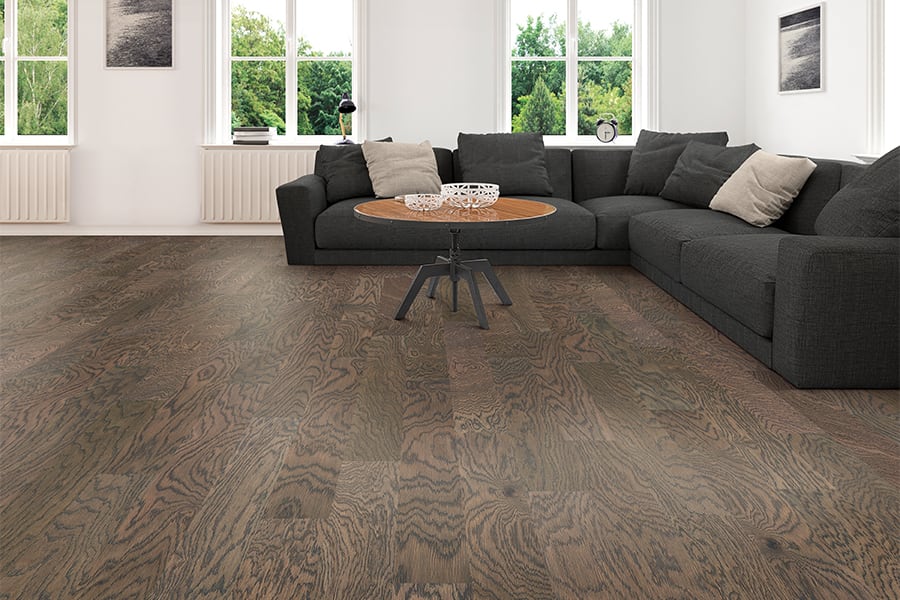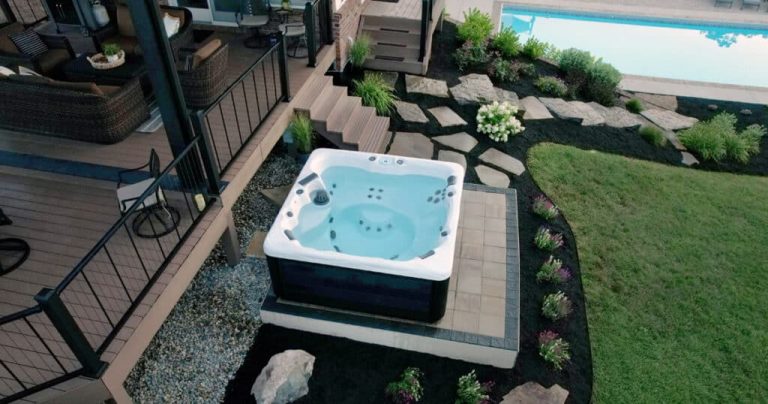Picking the right floor store saves you money and headaches. Look for stores with solid reviews, proper licenses, and staff who really know wood. Check their product range, warranties, and who does their installations. Local shops usually give better personal support. Compare how upfront they are about pricing, look at their past work, and ask what happens after installation.
Pick the wrong hardwood store and you might regret it for years. The right hardwood floor store helps you choose the best wood species, explains how to take care of it, and backs up their work. If you’re doing one room or your whole house, finding a place that combines quality products with great service protects your money. From checking licenses to looking at past jobs, knowing what to look for helps you avoid expensive mistakes and get beautiful floors that last.
Research Local Hardwood Floor Store Options
Start by asking friends, family, and neighbors who recently got hardwood installed. Real stories tell you which stores keep their word and which ones let people down. Ask them specific stuff about how the wood held up, if installers were professional, and whether the store fixed any problems.
Online reviews show you patterns in what customers experienced. Check several sites like Google Reviews, Yelp, and the Better Business Bureau. Look for things that come up again and again rather than one-off complaints. If lots of people gripe about sloppy installation or bad customer service, that’s a red flag. Stores that reply thoughtfully to criticism show they care about making things right.
Key things to look for in reviews:
- How well the materials hold up
- If staff actually know their stuff
- If installers showed up on time and did good work
- If prices matched what they quoted
- How fast they solved problems
Local stores beat big chains in several ways. They pay more attention to you personally, know how Wood handles your area’s weather, and care about their reputation in town. When the owner works in the store, they’re more likely to make sure you’re happy because word spreads fast in communities.
Credentials and Experience
Proper licenses and insurance protect you if things go wrong. Ask to see their contractor’s license and check its current status through your state’s website. Insurance needs to cover both general liability and workers’ compensation. This matters because if someone gets hurt on your property or damages something, you’re not on the hook.
Signs they know what they’re doing:
- National Wood Flooring Association (NWFA) membership
- Training certificates from wood manufacturers
- Certified installation crews
- Regular training to keep up with new techniques
Product Selection and Staff Expertise
Having lots of options means you can find exactly what works for your home, how you live, and what you can spend. A good hardwood floor store carries different wood types, including oak, maple, hickory, walnut, and exotic woods. They should have various quality grades, plank widths, finishes, and types like solid hardwood, engineered wood, and prefinished planks.
Smart staff explain how woods compare and help match what you need. They should talk about toughness using Janka hardness ratings, which measure how well wood resists dents. Staff should ask about your household, how many people, do you have pets, what the humidity is like, and how much cleaning you want to do before suggesting anything.
What knowledgeable staff should tell you:
- Which woods work best in busy areas
- How finishes affect how long it lasts and how you clean it
- What installation works for your type of subfloor
- How wood reacts to humidity in your home
- What upkeep each wood type needs
Quality Service
Clear pricing with everything spelled out means no surprise bills. Good stores give you quotes that break down what materials cost, what installation costs, preparing the subfloor, finishing, and hauling away old stuff. They tell you what’s included and what might cost extra. Being honest about money builds trust and helps you plan.
Good quotes include:
- Exact wood type, quality grade, and finish
- How many square feet plus extra for waste
- How they’ll install it and how long it takes
- What prep work does the subfloor need
- What warranties cover
Warranties show they believe in their products and work. Wood manufacturers usually cover the materials, but the store covers installation. Look for installation warranties that last at least a year, ideally longer. Understand what can void a warranty. Improper cleaning or maintenance often leads to lost coverage.
Ask about their payment process, too. Honest businesses don’t ask for everything upfront. Normal is a deposit to order materials, some money when they start installing, and the rest when they’re done. Be careful about stores wanting only cash or huge deposits.
Inspect Portfolios and Check References
Photos of past jobs show you how good their work is and what styles they can do. Ask to see pictures of finished floors, especially ones like what you want. Good photos show details how they matched the grain, how they did transitions, and how smooth the finish is. Some stores have showrooms where you can walk on samples and really look at them up close.
Talking to past customers gives you honest feedback. Ask for contacts from jobs they finished in the last year. Recent references tell you how they’re doing now. When you call references, ask specific questions about what happened.
Questions for references:
- Did they finish on time and stick to the budget?
- How did they handle problems that came up?
- Did they keep you updated throughout?
- How’s the floor holding up now?
- Would you hire them again?
Check if they’ve won any awards. Being in trade groups and winning awards shows they care about doing quality work. Their social media might show project photos and what customers said, though remember they pick what to post.
Installation and Aftercare Services That Matter Most
Good installation makes or breaks your floor. Ask about every step from beginning to end. Quality stores visit your house before giving a price to spot problems. They should explain the acclimation time, letting the wood sit in your home to adjust before installing.
Installation should cover:
- Checking your subfloor and fixing issues
- Testing for moisture to prevent future problems
- Installation by trained crews
- Checking quality during and after
- Complete cleanup afterward
Help after installation shows they’re in it for the long run. Good stores give you care instructions for your specific wood and finish. They explain how to clean it, what products to use, and how to fix small scratches. Some sell cleaning supplies and offer yearly maintenance.
Ask about future help. Can you buy matching wood later if you add a room or need repairs? Will they refinish your floors years from now? Stores that care about relationships offer these services and keep records of what you bought.
So, How Do You Make The Final Decision?
Compare stores using the same measures. Make a chart listing what’s good and bad about each store, what they carry, pricing, warranties, how much staff know, and installation quality based on what references said.
Trust your gut about how they treat you. Good staff listen, explain without pressure, and respect your budget. Easy communication means you’ll probably work well together. Stores that rush you or blow you off probably won’t help much during installation when you have questions.
Things to compare:
- What people say about them overall
- How staff communicate and what they know
- If they have what you need
- Fair and clear pricing
- Strong warranties
- Qualified installation crews
- Support after installation
Visit stores in person when you can. Walking through showrooms, touching different woods, and meeting staff tells you more than looking online. Notice how they treat you, whether they are being helpful, patient, or pushy. The atmosphere in a store often says a lot about how they’ll handle your project.
Takeaway
Choosing a hardwood floor store takes research, checking credentials, and comparing options carefully. Start by getting recommendations and reading reviews to find stores people trust. Check licenses, insurance, and how long they’ve been around to make sure they’re legit and you’re protected. Look at past work and talk to references to see if they do quality work consistently. Finally, compare all factors and trust your instincts about customer service. The right store knows their products, does proven quality work, and supports you well, making sure your hardwood floor investment looks beautiful and lasts for years.
Rustic Wood Floor Supply have spent years becoming the hardwood floor store homeowners trust when they want the best. Every team member receives ongoing training in wood types and proper installation techniques. The licensed installers have decades of experience between them creating perfect floors people love. When you pick Rustic Wood Floor Supply, you’re picking a partner who’s committed to giving you amazing floors through expert help and top-quality work. Your dream floors deserve that.
Frequently Asked Questions
1. What should I look for in a hardwood floor store?
Look for positive customer reviews, valid licenses and insurance, staff who know products and installation well, and pricing that’s clear and honest.
2. Why is it important to check a store’s credentials and experience?
Checking credentials and experience makes sure the store follows industry rules, meets regulations, and has proven they do reliable, quality work.
3. How does product selection impact the quality of flooring?
Having lots of products means customers can find the exact wood species, finishes, grades, and installation types that match what they need.
4. What services should a reputable hardwood floor store offer?
Good stores give clear pricing, detailed quotes, warranties on materials and installation, professional crews, and support after the job is done.
5. Why are customer reviews important when choosing a store?
Reviews show real experiences with product quality, how professional installers were, whether prices matched quotes, and how stores handled problems.
6. Should I prefer a local store for hardwood flooring?
Local stores usually give more personal service, care more about their reputation locally, and are easier to reach for help after installation.








